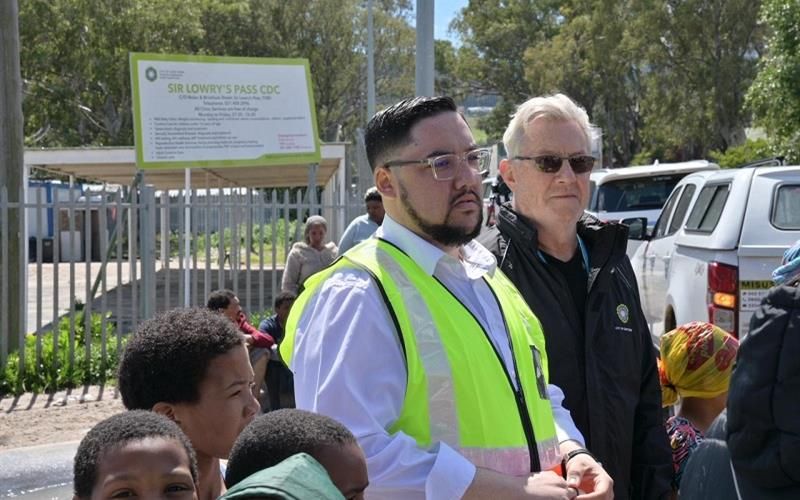Gauteng, a province in South Africa, has recently been confronted with serious water challenges as a result of various systemic issues. In response, the Minister of Water and Sanitation, Senzo Mchunu, along with Deputy Ministers David Mahlobo and Judith Tshabalala, embarked on a mission to visit the most affected areas in order to evaluate the situation, engage with impacted communities, and formulate viable solutions.
Active Community Involvement: A Proactive Strategy
Understanding the immediate need to address the issue, Minister Mchunu began the visits on September 26, concentrating on South Hills and Ebony Park within the City of Johannesburg. These areas were particularly impacted by the water supply crisis due to infrastructure and maintenance problems, which left residents struggling with insufficient access to clean water.
During these visits, the Minister and his team engaged with community members and local government officials to gain a deeper understanding of the underlying causes of the issues. This strategy is praiseworthy as it emphasizes the importance of including the people directly affected by the crisis in the decision-making process.
Broadening the Lens: Examining the Larger Water Issues
On September 27, the delegation extended its reach to other parts of Gauteng. Minister Mchunu focused on various areas in Tshwane, while Deputy Ministers Mahlobo and Tshabalala evaluated the scope of water issues in Ekurhuleni.
As part of the government’s plan to address the regional water crisis, several sites in these locations were visited. Tsakane, Soshanguve, and Waterkloof were among the areas examined by the Minister and his team. By including a wider range of affected areas, the Department of Water and Sanitation aims to gain a thorough understanding of the water challenges faced by diverse communities and develop customized solutions accordingly.
United Efforts: Joining Forces to Combat the Crisis
Addressing the complex water challenges in Gauteng demands the combined efforts of various stakeholders. The proactive approach taken by the Ministry of Water and Sanitation demonstrates the government’s dedication to tackling the issue head-on. However, the participation of local governments, civil society organizations, and the private sector is equally crucial for discovering sustainable solutions.
For instance, cooperation between different stakeholders can lead to the implementation of community-based projects to educate residents about water conservation and efficient usage. Furthermore, private sector involvement can help accelerate the development and implementation of innovative water supply and management technologies.
Looking Ahead: Building Resilience for the Future
While resolving the current water challenges in Gauteng is of primary importance, it is essential to adopt a forward-thinking approach to protect against similar crises in the future. Climate change, rapid urbanization, and population growth are likely to worsen the existing water supply issues, making it necessary to develop proactive strategies for enhanced water management and resilience.
Investing in the maintenance and upgrading of water infrastructure, expanding wastewater treatment facilities, and promoting the use of alternative water sources, such as rainwater harvesting and greywater recycling, can contribute to a more sustainable and resilient water future for Gauteng.
Additionally, cultivating a culture of water conservation, both at the individual and institutional levels, is essential for ensuring the long-term sustainability of the region’s water resources. Public awareness campaigns and educational initiatives can play a vital role in encouraging responsible water usage habits among communities.
The recent water challenges encountered by various parts of Gauteng serve as a stark reminder of the pressing need to address systemic issues and develop long-term, sustainable solutions. The Ministry of Water and Sanitation’s proactive engagement with affected communities and the collaborative approach to problem-solving are admirable initial steps towards overcoming the crisis.
However, achieving lasting progress will necessitate continued efforts from all stakeholders, as well as a focus on building resilience for future challenges. By working together, the people of Gauteng and their government can ensure that access to clean, safe water remains a fundamental right for all residents.








